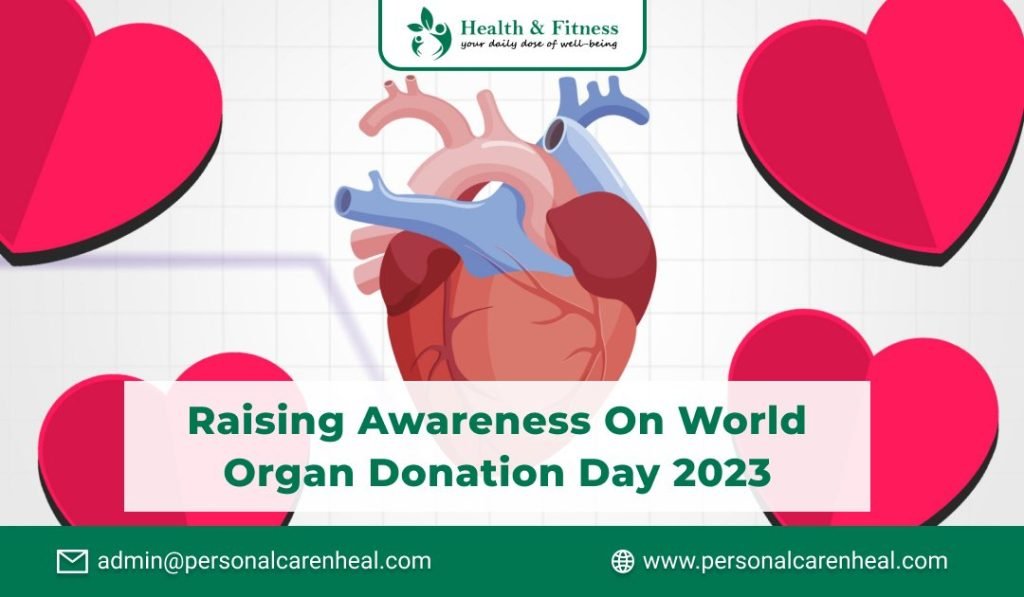
On August 13, world organ donation day is celebrated each year worldwide to spread awareness about the importance of organ donation. The primary purpose of the organizations engaged in these noble events is to encourage and aware people of the significance of donating organs after death to save more lives. Organ donations such as heart, kidneys, eyes, pancreas, and lungs can save the lives of people suffering from some chronic diseases.
Organ donation is the process of enabling one person, with their consent, to have their organs removed legally and transplanted to another needy person. One of the most chronic and deadly diseases is organ failure. Many people lost their lives in the past pandemic. One initiative can help save 8 lives by donating the pancreas, kidneys, heart, faces, hands, intestines, tissues, liver, stem cells, and bone marrow.
Organ Donation Day History
Ronald Lee Herrick made the first organ donation. He donated his kidney to his twin brother in 1954, and Dr Joseph Murray performed the successful organ transplant procedure. He received the Nobel Prize in Physiology and Medicine later that year for his contributions to the advancement of organ transplantation.
Regarding the activities for organ donation, various regions of the world address the relevance and lack of knowledge of organ donation based on their circumstances and capacity. National Organ Day was observed in India on November 27th, which was inaugurated in 2010 under the Ministry of Health & Family Welfare by the National Organ and Tissue Transplant Organisation (NOTTO) and will continue through 2022.
The date of the national organ donation day in India will change to August 3 in 2023 to honour the first successful deceased donor heart transplant performed there on that date in 1994.
Significance of World Donation Day 2023
A vital part of preserving lives is organ donation. People who are experiencing organ failure are given fresh life through organ donation. The myths surrounding organ donation have been largely dispelled thanks to medical advancements throughout the years. It is a day set aside to emphasise the value of organ donation. This day is meant to raise awareness of how changing one person’s life by donating an organ can affect many others. Any age can donate an organ, however, those under 18 must have their parents’ or guardians’ permission in order to register.
Types of Organ Donation
Living and cadaveric donation are the two types of organ donation. In a living donation, the donor is still alive, in a cadaver donation, the donor has already passed away. Living donors are those who can donate organs like kidneys and liver fragments. The only organ in the body known to regenerate is the liver, which makes it possible to transplant these organs while the donor is still living. Humans can survive with just one kidney.
The most vital factor is a healthy donor. Regardless of age, caste, or religion, anyone can donate an organ. However, it is crucial to make sure that potential organ donors are free of chronic diseases like HIV, cancer, heart disease, and lung disease.
What Types of Organs Can Be Donated?
Living donors can donate the following types of organs:
one kidney
one lung
a part of the liver
a part of the pancreas
a part of the intestine
Untold Facts about Organ Donation
If a person dies naturally, heart valves, tissue of cornea, skin and bone can be donated. On the other hand, other vital organs like the liver, heart, kidneys, lungs, intestines, and pancreas can only be donated in case of brain death.
Anyone of any age is eligible for organ donation, but the medical conditions of the donor are verified and monitored.
If someone under age 18 wants to donate an organ, they need to have consent signed by their guardians or parents.
Registered organ donors in India are only 3%.
As per World Health Organization, in India, only 0.01% of people donate their organs after death.
To regulate organ donation in the country, India has Human Organ and Tissue Transplantation Act. It allows both living and dead people to donate organs.
Conclusion
The blog outlines the importance of celebrating world organ donation day and amazing facts about organ donation. It inspires everyone to donate organs after death to give a new life to someone with a chronic disease. Moreover, keep reading such informative blogs on our website by subscribing to Personal Care N Heal.


